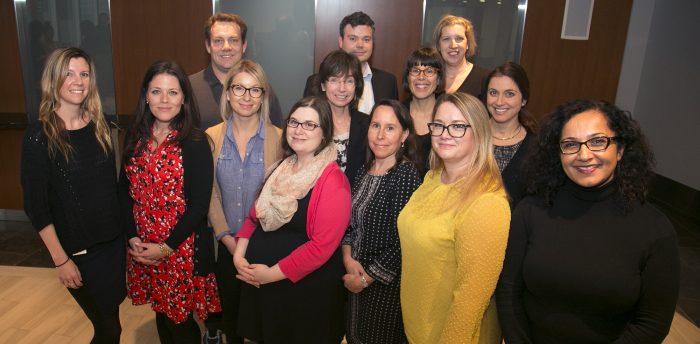5 Ways to Immediately Improve your Business Communication
Posted on August 18, 2015
1. Learn how to be present
You cannot not communicate – or so the cliché goes. One of the skills that separate the mediocre from the pretty darn good when it comes to business communication, is keeping one’s thoughts in the moment. Try to not think about the previous interactions or thoughts you have had about a particular situation or person. By being both present and in the present you can bring your best self with you. Another word for present is gift, give this gift to your communications and they will improve immediately.
2. Create your own cheat sheets
The most rehearsed, practised and loved skills are the ones that “magically” appear to be effortless or natural to others. Don’t be fooled. The best business communicators build tools and yes, cheat sheets, for themselves. Make notes of your observations or of your interactions with others, use your available technology. There is no better use of a phone or tablet than making your own communication cheat sheets. Keep track of what your colleagues say and what you have said to them. Cheat sheets are the (not so) secret weapons that many executives and professionals I have worked with use to make their communications appear natural. Cheat sheets are how to build your communications repertoire.
3. Choose your language wisely
One of the most seductive errors many professionals make is to “borrow” another person’s language. I’m not referring to quoting (or misquoting) and I’m also not referring to plagiarism. I am referring to using language that others – your readers and your listening audience – can intuit is not yours; language that you are not fully comfortable with, that you have borrowed from someone or somewhere else. Choosing language that you are comfortable with creates the comfort many of us need in order to then address our language to our specific audience. Remember to address your topic, not impress your audience. The difference can be your communications success or failure.
4. Manage yourself before others.
Ensure that you spend the time – little for some, a lot for others – on yourself before you focus on either your readers or listening audience. This is not what the communications gurus want you to know! They tell you to read your audience, to focus on your audience’s needs, to know who your reader really is. And while that is all sage advice, it is also secondary to your intrapersonal knowledge. Ask yourself: What am I after? What is my true message? What value do I offer? These are the primary questions to thoroughly and thoughtfully answer before the interpersonal focus outwards. Self first.
5. Enrol in the Effective Business Communications Skills Program – 5 days at Schulich ExecEd
Through a comprehensive five-day curriculum, this program is designed to teach, react and offer value. It is how you will increase your intrapersonal knowledge in order to then create and practice the interpersonal skills that effective business communication demands.
A major goal of this interactive workshop is how it offers you a comprehensive understanding of the impact your communication choices have on your colleagues, your clients and vendor relationships, and your overall professional success. You will integrate your communication skills through practice and feedback to successfully navigate your current work situations. See you soon.

Diana Kawarsky, MA CCP, specializes in business communications for the Schulich ExecEd in the Schulich School of Business at York University. In addition, she is a facilitator, adult educator, coach and management consultant with Fortune 500 companies throughout North America. Her experience spans nearly 20 years. Diana is a specialist in facilitating learning for professionals to hone their interpersonal and intrapersonal skill sets; topics include, business writing, customer service skills, presentation skills, leadership development, management effectiveness, productivity skills, storytelling and creative thinking and problem solving.













